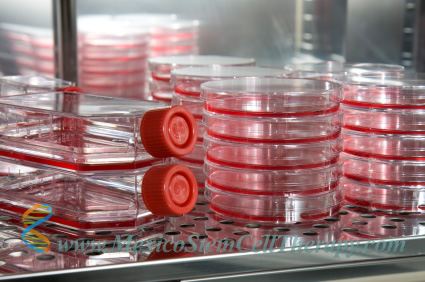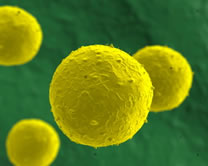Foods that Promote Mucus Production and Foods that Eliminate Mucus in the Body
21 Foods That Promote Mucus Production And 21 Foods That Eliminate Mucus In The Body
 If you suffer from a chronic cough that will not disappear, wake up in the morning with your wrinkled, crusty eyes or have a bad breath, then you may suffer from excessive mucus formation. In fact, there are more than 21 foods that cause excess mucus in the body, some may be a surprise, and others may not.
If you suffer from a chronic cough that will not disappear, wake up in the morning with your wrinkled, crusty eyes or have a bad breath, then you may suffer from excessive mucus formation. In fact, there are more than 21 foods that cause excess mucus in the body, some may be a surprise, and others may not.
Excessive mucus is a sign that the body is in a state of agitation. It can come from toxins, pollutants, allergies and nutritional supplements, and often involves the lymph system, the gastrointestinal tract, and the respiratory system.
The Role Of Mucus In The Body
This does not mean that mucus does not play a role in the body. They are produced by different mucus cells (i.e., goblet cells) from the epithelial lining of organs such as the intestine and the respiratory tract. They are found in the bronchial, trachea and large bronchioles in the respiratory tract, as well as in the small intestine, colon, and conjunctiva upper lobe.
The mucus is formed to protect the mucosa where it is located. The problem occurs when there is excessive mucus secretion that can be triggered by irritants such as dust, smoke, other pollutants, chemicals, bacteria and viruses, food additives and food allergens. It produces excess mucus to catch these particles and evacuates them from the body meaning cough, sneezing nose, hard breathing and more.
Mucus And Your Diet
Some drinks and foods can result in excessive mucus in the body. The two main foods that cause excessive accumulation of mucus are dairy products and wheat. Casein in dairy products (milk, yogurt, cheese, etc.) and wheat gluten require strong gastric acid for digestion. Once the digestive tract is complete, the food particles are too large for the body to use. These partially digested food particles collapse and overlap with thick mucus to prevent further rupture in the intestines.
Since a large part of the North American diet consists of dairy products and wheat, many people carry chronically fighting bodies against some kind of “viral invasion” – the body is disturbing by foreign products (such as dairy and wheat products) and naturally protects against these food particles, causing inflammation and causing excess mucus.
To be somewhat more specific, here is a long list of foods that create mucus in the body:
- Dairy products (yogurt, milk, sour cream, cottage cheese, ice cream, butter, ghee)
- All corn products
- Eggs
- Red meat
- Vegetable oils
- Sugary treats (cookies, cake, pies, pastries)
- Wheat (bread, pretzels, buns, bagels, muffins, etc.)
- Deep fried foods
- All soy products
- Safflower/sunflower oil
- Gluten found in wheat product
- Marshmallow
- Jams and jellies
- High-fat red meat
- Seeds (All Kinds; Sunflower, Pumpkin, Hemp, Sesame, etc.
- Alcohol
- Soy and soy products like tofu
- Sodas (including diet sodas)
- Margarine
- Potatoes
- Caffeine
Remove Mucus And Heal Your Body Exactly
Removing foods caused by mucus is necessary to keep the body functioning at an optimum pace. Raw fruits and vegetable foods have been considered to be one of the best mucus cleansers. When you switched to switch to a high-raw plant-based lifestyle, your mucus problems with mucus decreased, and your health improved 10 times.
In addition, however, there are some foods that can relieve excess mucus. That includes:
- Radishes (red, daikon, horseradish)
- Honey or agar
- All leafy greens and herbs
- Cauliflower and broccoli
- Garlic
- Celery
- Apples
- Carrot
- Broccoli
- Asparagus
- Bamboo shoots
- Onions
- Ginger and turmeric
- Citrus fruits (lemons, limes, grapefruits, oranges, kumquats, etc.)
- Pineapple
- Berries
- Brussels sprouts
- Hot peppers
- Chicken soup can also relieve the problem of excessive mucus.
- Fatty fish including tuna, salmon, sardines, lake trout, herring, and flounder
- Olive oil
As you can see, some drinks and foods can cause excess mucus and relieve excessive mucus. If you catch flu, colds, sinusitis or allergies, you should reduce the food that causes the mucus and eats more food that relieves it.
Mucus and Chronic Obstructive Pulmonary Disease (COPD)
Published article in the International Journal of Chronic Obstructive Pulmonary Disease shows that the increase in mucus production generally found among patients with COPD or chronic bronchitis. A large amount of mucus affects lung function and increases the number of COPD-related aggravations, infections, and hospitalizations. As a matter of fact, people with “chronic mucus hypersecretion” have a higher risk of respiratory-related death.
For people without COPD is easier to get rid of excess mucus, however, those with this disease have a tougher time due to poor function of the cilia in the respiratory tract and an “ineffective cough” due to weak respiratory muscles and clogged airways.
So the best solution for patients with COPD is to avoid foods that increase mucus generation.
Related:



